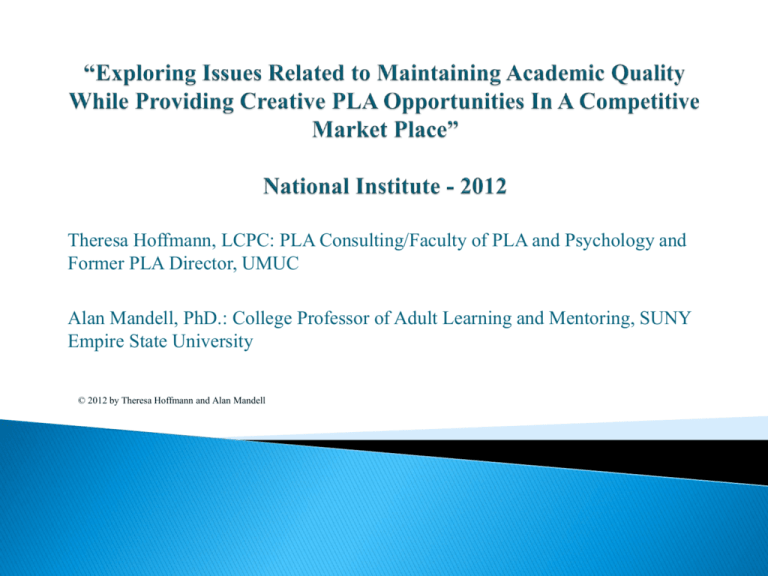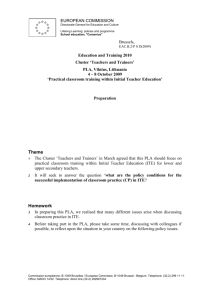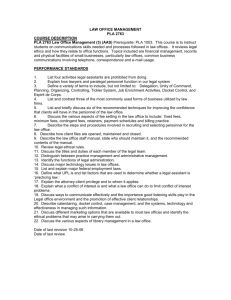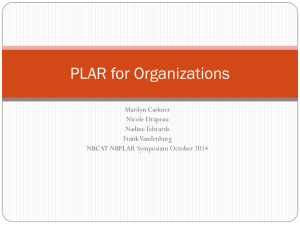*Exploring Issues Related to Maintaining Academic Quality While
advertisement

Theresa Hoffmann, LCPC: PLA Consulting/Faculty of PLA and Psychology and Former PLA Director, UMUC Alan Mandell, PhD.: College Professor of Adult Learning and Mentoring, SUNY Empire State University © 2012 by Theresa Hoffmann and Alan Mandell Introduction: What are some of the causes of internal/external tensions? How are PLA programs and institutions experiencing the tensions from external and internal sources? There is a push to change…are you all experiencing it? What is your experience of the tensions? Are the tensions real for you? External Tensions: ◦ ◦ ◦ ◦ ◦ ◦ ◦ ◦ ◦ Economics Competing in a volatile marketplace Diploma Mill mentality – selling credits Multiple Delivery Modalities - Classroom and Online Environments Workforce-relevant degrees Employer relationships Expediting degrees for less money Competition of Traditional classroom vs online environments Others? Internal Tensions: ◦ Multiple levels of issues: Institution Faculty Administration Students Accreditation agency Institution: Gate keeping academic quality in a world of change Service Model – Consumer Mentality – quickly, cheaply, easy Efficiencies Faculty: Qualifications Academic integrity concerns PLA Training Justification of valid, creditable learning in PLA Program Administration: Efficient delivery and accountability systems Program quality assessment practices Addressing academic and system vulnerabilities Program jeopardy Maintaining positive program perceptions Addressing institutional “black sheep” image of PLA and microscopic mentality Students: Access to course, materials, and support services Supportive environment to meet adult needs Advising Military Tutoring Learning challenges Accreditation: ◦ Evidence of PLA and Institutional policies ◦ Documentation of quality assurance practices ◦ Student PLA archived materials Some institutions have responded to these tensions in a variety of ways by developing PLA models that work to address the issues. Some of the models can make a big difference in terms of quality, efficiency, faculty involvement, access and the marketing of potential students: Open-ended models Exam or course based models Portfolio based models Imagine that you are asked to create a PLA program at your institution that can be competitive with the current marketplace…how would you do it? What are some creative solutions? How would you answer: We have academic quality because…. What are the specific academic quality mechanisms that you have put in place? Do they work? How do you know? What are the quality assurance mechanisms upon which you rely? What are some of the specific problems that you know, now, that you want to tackle at your institution? What steps do you have to take in your institution to respond to these ongoing concerns/tensions? Can you be proactive, even given the abiding tensions that exist in this area? Please contact us if you have any questions. Terry Hoffmann, PLA Consulting, PLA Faculty and Former Director of PLA Program at UMUC Phone: 301-890-8434 Website (Instructional Materials): PLAConsulting.com Email: placonsulting1@gmail.com Alan Mandell, Mentor and College Professor of Adult Learning and Mentoring SUNY Empire State College Phone: 646-230-1255 Email: Alan.Mandell@esc.edu


